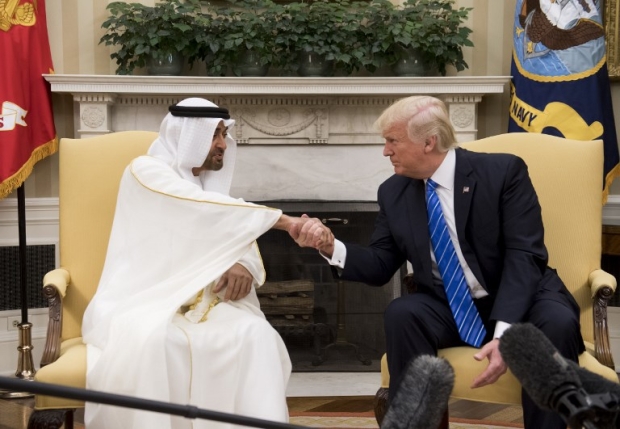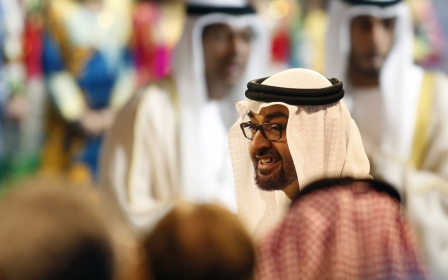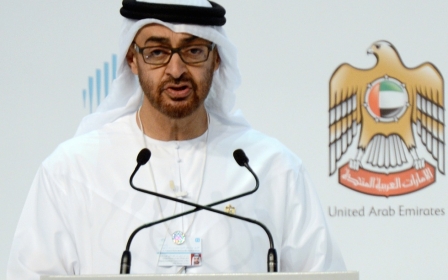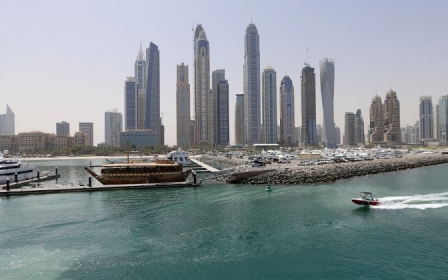Inside the dark web of the UAE's surveillance state
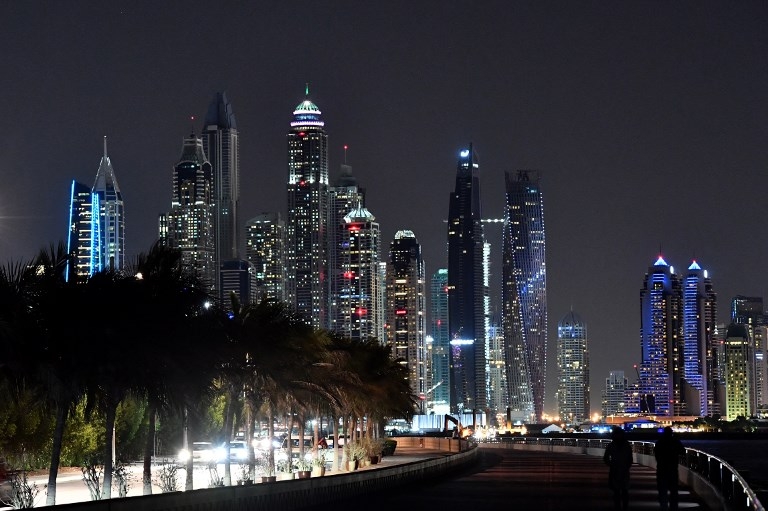
The nuts and bolts of the Emirati surveillance state moved into the spotlight on 1 February as the Abu Dhabi-based cybersecurity company DarkMatter allegedly stepped "out of the shadows" to speak to the international media.
Its CEO and founder, Faisal al-Bannai, gave a rare interview to the Associated Press at the company's headquarters in Abu Dhabi, in which he absolved his company of any direct responsibility for human rights violations in the UAE.
Established in the UAE in 2015, DarkMatter has always maintained itself to be a commercially driven company. Despite the Emirati government constituting 80 percent of DarkMatter's customer base and the company previously describing itself as "a strategic partner of the UAE government", its CEO was at pains to suggest that it was independent from the state.
According to its website, the company's stated aim is to "protect governments and enterprises from the ever-evolving threat of cyber attack" by offering a range of non-offensive cybersecurity services.
Seeking skilled hackers
Though DarkMatter defines its activities as defensive, an Italian security expert, who attended an interview with the company in 2016, likened its operations to "big brother on steroids" and suggested it was deeply rooted within the Emirati intelligence system.
Simone Margaritelli, also a former hacker, alleged that during the interview he was informed of the UAE's intention to develop a surveillance system that was "capable of intercepting, modifying, and diverting (as well as occasionally obscuring) traffic on IP, 2G, 3G, and 4G networks".
Although he was offered a lucrative monthly tax-free salary of $15,000, he rejected the offer on ethical grounds.
Furthermore, in an investigation carried out by The Intercept in 2016, sources with inside knowledge of the company said that DarkMatter was "aggressively" seeking skilled hackers to carry out offensive surveillance operations. This included plans to exploit hardware probes already installed across major cities in order to track, locate and hack any person at any time in the UAE.
In many respects, the UAE's surveillance infrastructure has been built by a network of international cybersecurity “dealers” who have willingly profited from supplying the Emirati regime with the tools needed for a modern-day surveillance state
As with other states, there is a need for cybersecurity in the UAE. As the threat of cyber attacks has increased worldwide, there have been numerous reports of attempted attacks from external actors on critical infrastructure in the country.
Since the Arab uprisings of 2011, however, internal "cyber-security governance", which has been utilised to quell the harbingers of revolt and suppress dissident voices, has become increasingly important to the Emirati government and other regimes across the region.
Authoritarian control
In the UAE, as with other GCC states, this has found a legislative expression in the cybercrime law. Instituted in 2012, its vaguely worded provisions essentially provide a legal basis to detain anybody who criticises the regime online.
This was to be followed shortly after by the formation of the UAE’s own cybersecurity entity, the National Electronic Security Authority (NESA), which recently began working in parallel with the UAE Armed Forces’ cyber command unit, established in 2014.
A network of Emirati government agencies and state-directed telecommunications industries have worked in loose coordination with international arms manufacturers and cybersecurity companies to transform communications technologies into central components of authoritarian control.
In 2016, an official from the Dubai police force announced that authorities were monitoring users across 42 social media platforms, while a spokesperson for the UAE’s Telecommunication Regulatory Authority similarly boasted that all social media profiles and internet sites were being tracked by the relevant agencies.
Last year, Jordanian journalist Tayseer al-Najjar and prominent Emirati academic Nasser bin Ghaith received sentences of three and 10 years respectively for comments made on social media. Similarly, award-winning human rights activist Ahmed Mansoor has been arbitrarily detained for nearly a year due to his online activities.
This has been a common theme across the region in the post-"Arab Spring" landscape. In line with this, a lucrative cybersecurity market opened up across the Middle East and North Africa, which, according to the US tech research firm Gartner, was valued at $1.3bn in 2016.
A modern-day surveillance state
In many respects, the UAE's surveillance infrastructure has been built by a network of international cybersecurity "dealers" who have willingly profited from supplying the Emirati regime with the tools needed for a modern-day surveillance state.
Moreover, it has been reported that DarkMatter has been hiring a range of top talent from across the US national security and tech establishment, including from Google, Samsung and McAfee. Late last year, it was revealed that DarkMatter was managing an intelligence contract that had been recruiting former CIA agents and US government officials to train Emirati security officials in a bid to bolster the UAE's intelligence body.
UK military companies also have a foothold in the Emirati surveillance state. Last year, it was revealed that BAE Systems had been using a Danish subsidiary, ETI Evident, to export surveillance technologies to the UAE government and other regimes across the region.
'The million dollar dissident'
Although there are officially no diplomatic relations between the two countries, in 2016, Abu Dhabi launched Falcon Eye, an Israeli-installed civil surveillance system. This enables Emirati security officials to monitor every person "from the moment they leave their doorstep to the moment they return to it", a source close to Falcon Eye told Middle East Eye in 2015.
The source added that the system allows work, social and behavioural patterns to be recorded, analysed and archived: "It sounds like sci-fi but it is happening in Abu Dhabi today."
Moreover, in a story that made headlines in 2016, Ahmed Mansoor's iPhone was hacked by the UAE government with software provided by the Israeli-based security company NSO Group. Emirati authorities reportedly paid $1m for the software, leading international media outlets to dub Mansoor "the million-dollar dissident."
Mansoor's case is illustrative of how Emirati authorities have conducted unethical practices in the past. In recent years, the UAE has bought tailored software products from international companies such as Hacking Team to engage in isolated, targeted attacks on human rights activists, such as Mansoor.
The operations of DarkMatter, as well as the installation of Falcon Eye, suggest, however, that rather than relying on individual products from abroad, Emirati authorities are now building a surveillance system of their own and bringing operations in-house by developing the infrastructure for a 21st-century police state.
- Joe Odell is press officer for the International Campaign for Freedom in the UAE. He has an MA in Middle East Politics from the School of Oriental and African Studies.
The views expressed in this article belong to the author and do not necessarily reflect the editorial policy of Middle East Eye.
Photo: A picture taken on January 11, 2018, shows the skyline of the Dubai Marina (AFP)
This article is available in French on Middle East Eye French edition.
New MEE newsletter: Jerusalem Dispatch
Sign up to get the latest insights and analysis on Israel-Palestine, alongside Turkey Unpacked and other MEE newsletters
Middle East Eye delivers independent and unrivalled coverage and analysis of the Middle East, North Africa and beyond. To learn more about republishing this content and the associated fees, please fill out this form. More about MEE can be found here.



